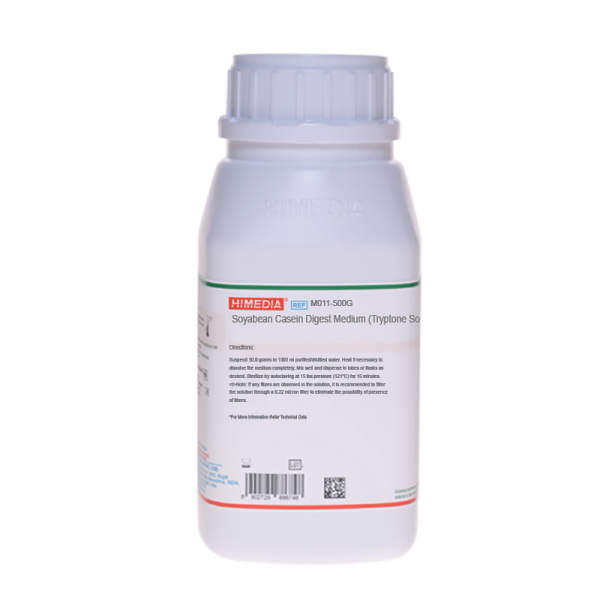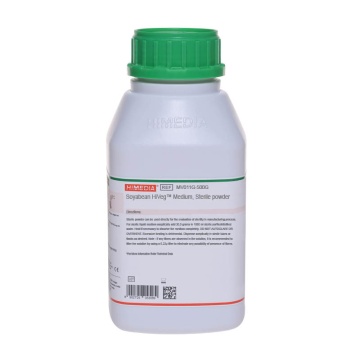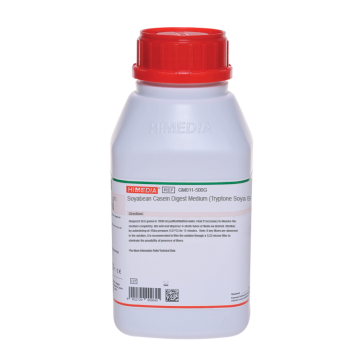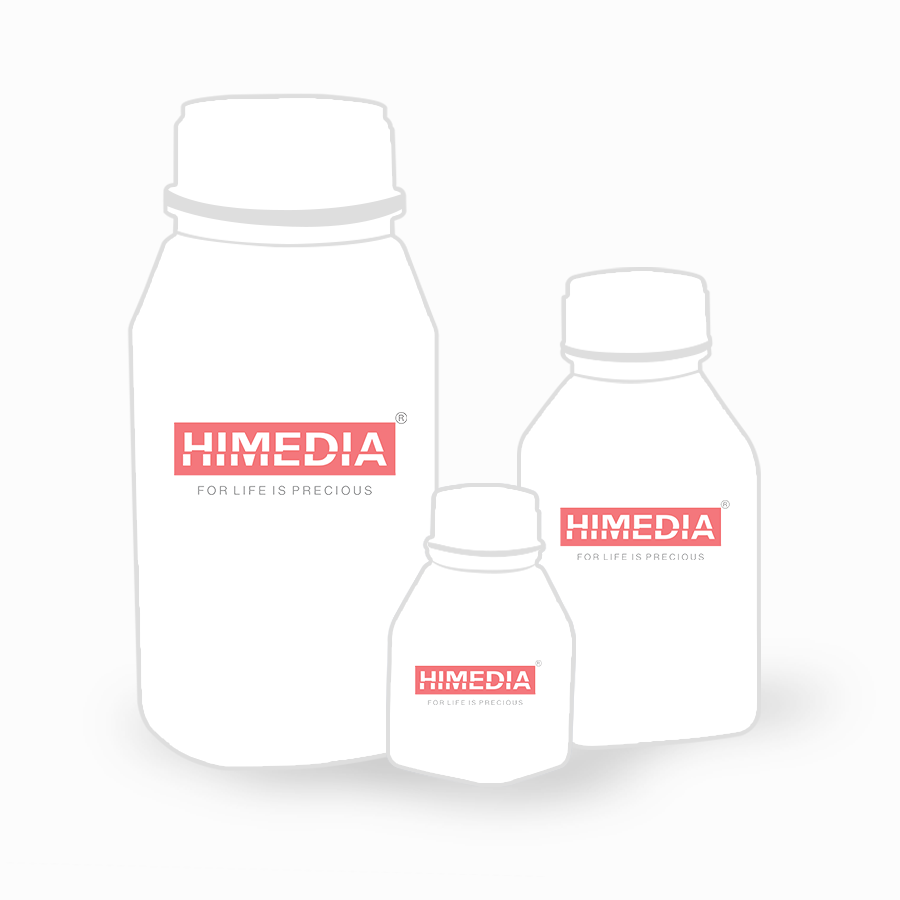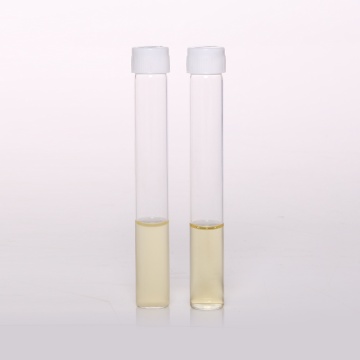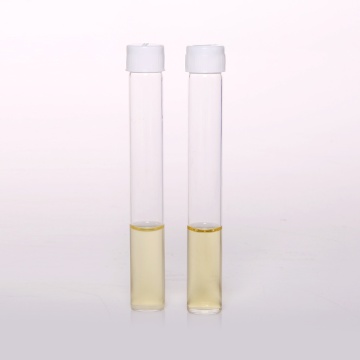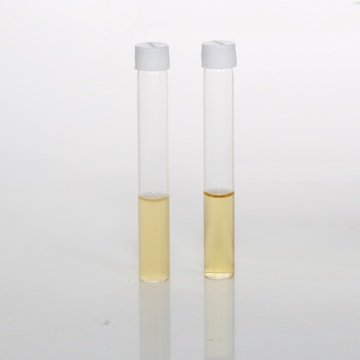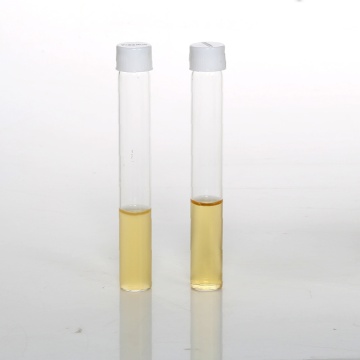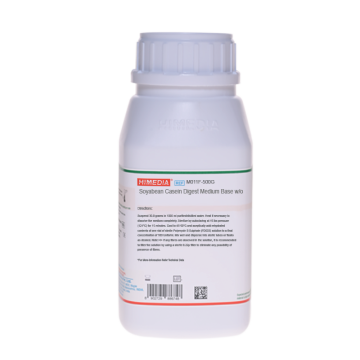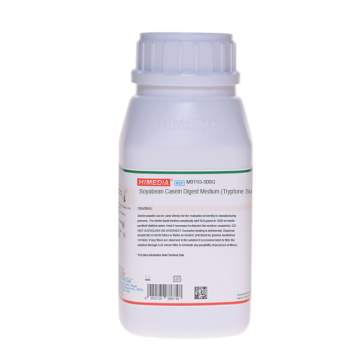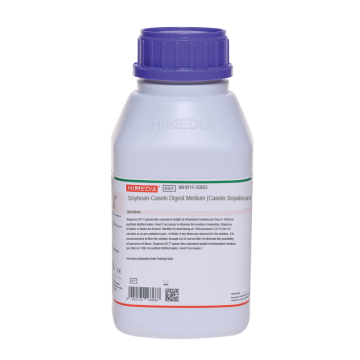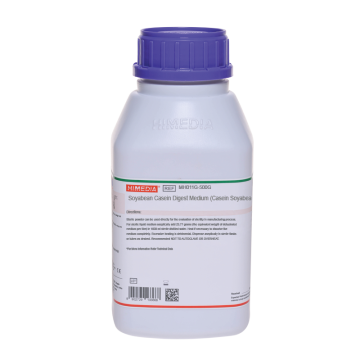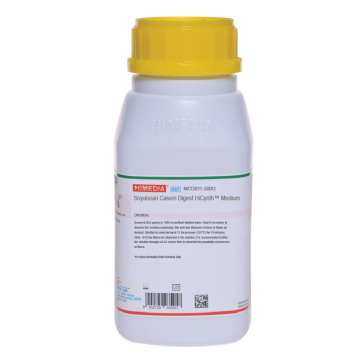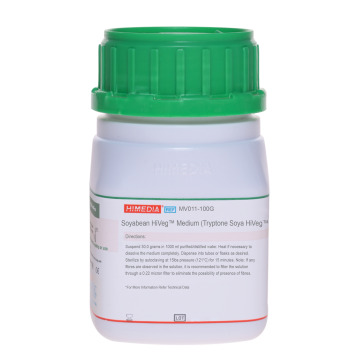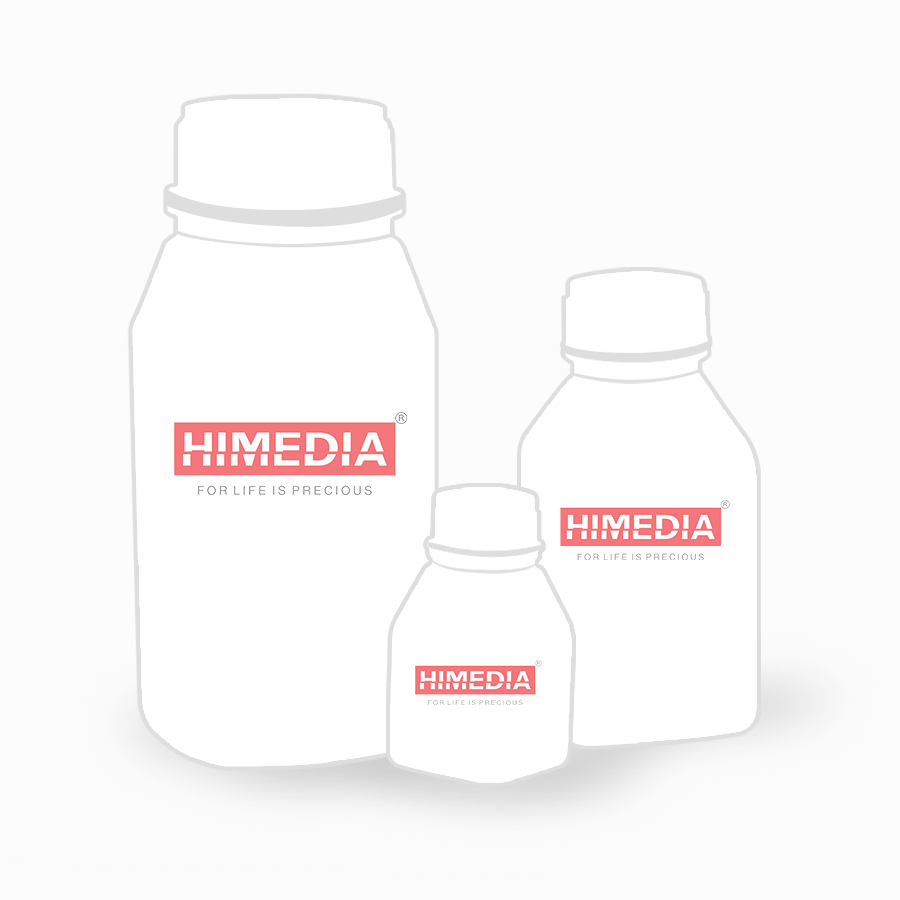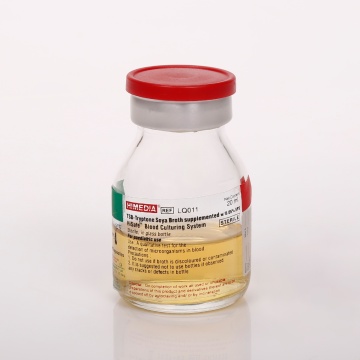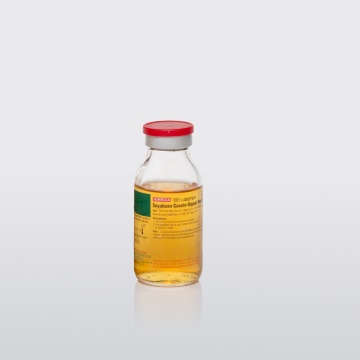 Your enquiry has been submitted
Your enquiry has been submitted
Soyabean Casein Digest Medium (Tryptone Soya Broth)
Shigella species#CC293D
Intended Use
Recommended as a general purpose medium used for cultivation of a wide variety of microorganisms and recommended for sterility testing of moulds and lower bacteria.
Composition**
| Ingredients | g/L |
|---|---|
| Tryptone | 17.000 |
| Soya peptone | 3.000 |
| Sodium chloride | 5.000 |
| Dextrose (Glucose) | 2.500 |
| Dipotassium hydrogen phosphate | 2.500 |
Final pH (at 25°C): 7.3±0.2
**Formula adjusted, standardized to suit performance parameters
Directions
Suspend 30.0 grams in 1000 ml purified/ distilled water. Heat if necessary to dissolve the medium completely. Mix well and dispense in tubes or flasks as desired. Sterilize by autoclaving at 15 lbs pressure (121°C) for 15 minutes.
Note: If any fibres are observed in the solution, it is recommended to filter the solution through a 0.22 micron filter to eliminate the possibility of presence of fibres.
Principle And Interpretation
Soyabean Casein Digest Medium is recommended by various pharmacopeias as a sterility testing and as a microbial limit testing medium (1,2,3). This medium is a highly nutritious medium used for cultivation of a wide variety of organisms (4).
The combination of Tryptone and soya peptone makes the medium nutritious by providing nitrogenous, carbonaceous substances, amino acids and long chain peptides for the growth of microorganisms. Dextrose/glucose serve as the carbohydrate source and dibasic potassium phosphate buffer the medium. Sodium chloride maintains the osmotic balance of the medium.
Type of specimen
Pharmaceutical samples, Clinical samples - urine, pus, wound samples.
Specimen Collection and Handling
For clinical samples, follow appropriate techniques for handling specimens as per established guidelines (5,6).
For pharmaceutical samples, follow appropriate techniques for sample collection, processing as per pharmaceutical guidelines (2). After use, contaminated materials must be sterilized by autoclaving before discarding.
Warning and Precautions
In Vitro diagnostic Use. For professional use only. Read the label before opening the container. Wear protective gloves/protective clothing/eye protection/ face protection. Follow good microbiological lab practices while handling specimens and culture. Standard precautions as per established guidelines should be followed while handling clinical specimens. Safety guidelines may be referred in individual safety data sheets.
Limitations
- Biochemical characterization is necessary to be performed on colonies from pure cultures for further identification.
- This medium is general purpose medium and may not support the growth of fastidious organisms.
Performance and Evaluation
Performance of the medium is expected when used as per the direction on the label within the expiry period when stored at recommended temperature.
Quality Control
Appearance: Cream to yellow homogeneous free flowing powder
Colour and Clarity of prepared medium: Light yellow coloured clear solution without any precipitate.
Reaction: pH of 3.0% w/v aqueous solution at 25°C (after sterilization). pH: 7.3±0.2
pH: 7.10-7.50
Stability test: Light yellow coloured clear solution without any precipitation or sedimentation at room temperature for 7 days
Growth promoting properties
Clearly visible growth of microorganism comparable to that previously obtained with previously tested and approved lot of medium occurs at the specified temperature for not more than the shortest period of time specified inoculating not more than 100 cfu (at 30-35°C for 18-24 hours for bacteria and 5days for fungal) Growth promotion is carried out as per USP/EP/BP/JP/IP.
| Organism | Inoculum (CFU) | Growth | Incubation temperature | Incubation period |
|---|---|---|---|---|
| Salmonella Typhimurium ATCC 14028 (00031*) | 50-100 | luxuriant | 30-35 °C | 18-24 hrs |
| Salmonella Abony NCTC 6017 (00029*) | 50-100 | luxuriant | 30-35 °C | 18-24 hrs |
| ^Pseudomonas paraeruginosa ATCC 9027 (00026*) | 50-100 | luxuriant | 30-35 °C | 18-24 hrs |
| Staphylococcus aureus subsp. aureus ATCC 6538 (00032*) | 50-100 | luxuriant | 30-35 °C | 18-24 hrs |
| Escherichia coli ATCC 25922 (00013*) | 50-100 | luxuriant | 30-35 °C | 18-24 hrs |
| Escherichia coli ATCC 8739 (00012*) | 50-100 | luxuriant | 30-35 °C | 18-24 hrs |
| ** Bacillus spizizenii ATCC 6633 (00003*) | 50-100 | luxuriant | 30-35 °C | 18-24 hrs |
| $ Kocuria rhizophila ATCC 9341 | 50-100 | luxuriant | 30-35 °C | 18-24 hrs |
| Pseudomonas aeruginosa ATCC 27853 (00025*) | 50-100 | luxuriant | 30-35 °C | 18-24 hrs |
| Candida albicans ATCC 10231 (00054*) | 50-100 | luxuriant | 20-25 °C | <=5 d |
| Staphylococcus aureus subsp. aureus ATCC 25923 (00034*) | 50-100 | luxuriant | 30-35 °C | 18-24 hrs |
| Sterility Testing- Growth promotion+Validation | ||||
| Staphylococcus aureus subsp. aureus ATCC 6538 (00032*) | 50-100 | luxuriant | 20-25 °C | <=3 d |
| # Aspergillus brasiliensis ATCC 16404 (00053*) | 50-100 | luxuriant | 20-25 °C | <=5 d |
| Candida albicans ATCC 2091 (00055*) | 50-100 | luxuriant | 30-35 °C | <=5 d |
| Staphylococcus aureus subsp. aureus ATCC 25923 (00034*) | 50-100 | luxuriant | 20-25 °C | <=3 d |
| Escherichia coli ATCC 25922 (00013*) | 50-100 | luxuriant | 20-25 °C | <=3 d |
| ^Pseudomonas paraeruginosa ATCC 9027 (00026*) | 50-100 | luxuriant | 20-25 °C | <=3 d |
| ** Bacillus spizizenii ATCC 6633 (00003*) | 50-100 | luxuriant | 20-25 °C | <=3 d |
| Salmonella Typhimurium ATCC 14028 (00031*) | 50-100 | luxuriant | 20-25 °C | <=3 d |
| Salmonella Abony NCTC 6017 (00029*) | 50-100 | luxuriant | 20-25 °C | <=3 d |
| Escherichia coli ATCC 8739 (00012*) | 50-100 | luxuriant | 20-25 °C | <=3 d |
| Pseudomonas aeruginosa ATCC 27853 (00025*) | 50-100 | luxuriant | 20-25 °C | <=3 d |
| $ Kocuria rhizophila ATCC 9341 | 50-100 | luxuriant | 20-25 °C | <=3 d |
Key: (*) Corresponding WDCM numbers
^ Formerly known as Pseudomonas aeruginosa
# Formerly known as Aspergillus niger
**Formerly known as Bacillus subtilis subsp. spizizenii
$ Formerly known as Micrococcus luteus
Storage and Shelf Life
Store between 10-30°C in a tightly closed container and the prepared medium at 15-30°C. Use before expiry date on the label. On opening, product should be properly stored dry, after tightly capping the bottle in order to prevent lump formation due to the hygroscopic nature of the product. Improper storage of the product may lead to lump formation. Store in dry ventilated area protected from extremes of temperature and sources of ignition Seal the container tightly after use. Product performance is best if used within stated expiry period.
Disposal
User must ensure safe disposal by autoclaving and/or incineration of used or unusable preparations of this product. Follow established laboratory procedures in disposing of infectious materials and material that comes into contact with clinical sample must be decontaminated and disposed of in accordance with current laboratory techniques (5,6).
Reference
- Indian Pharmacopoeia, 2022, Indian Pharmacopoeia Commission, Ministry of Health and Family Welfare Government of India.
- MacFaddin J. F., 1985, Media for Isolation-Cultivation-Identification-Maintenance of Medical Bacteria, Vol. 1, Williams & Wilkins, Baltimore, M.d.
- The United States Pharmacopoeia-National Formulatory (USP-NF), 2022.
- Forbes B. A., Sahm D. F. and Weissfeld A. S., 1998, Bailey & Scotts Diagnostic Microbiology, 10th Ed., Mosby, Inc. St. Louis, Mo.
- Isenberg, H.D. Clinical Microbiology Procedures Handbook 2nd Edition.
- Jorgensen, J.H., Pfaller, M.A., Carroll, K.C., Funke, G., Landry, M.L., Richter, S.S and Warnock., D.W. (2015) Manual of Clinical Microbiology, 11th Edition. Vol. 1.
| Product Name | Soyabean Casein Digest Medium (Tryptone Soya Broth) |
|---|---|
| SKU | M011 |
| Product Type | Regular |
| Physical Form | Powder |
| Origin | Animal |
| Packaging type | HDPE |
| References | 1. MacFaddin J. F., 1985, Media for Isolation-Cultivation-Identification-Maintenance of Medical Bacteria, Vol. 1, Williams& Wilkins, Baltimore, M.d. 2.The United States Pharmacopeia, 2018, USP 41/NF36, The United States Pharmacopeial Convention, Rockville, MD. 3.Indian Pharmacopeia, 2018, Govt. of India, Ministry of Health and Family Welfare, New Delhi, India. 4.Forbes B. A., Sahm D. F. and Weissfeld A. S., 1998, Bailey & Scotts Diagnostic Microbiology, 10th Ed., Mosby, Inc. St.Louis, Mo. 5.Isenberg, H.D. Clinical Microbiology Procedures Handbook. 2nd Edition. 6.Jorgensen,J.H., Pfaller , M.A., Carroll, K.C., Funke, G., Landry, M.L., Richter, S.S and Warnock., D.W. (2015)Manual of Clinical Microbiology, 11th Edition. Vol. 1. |
| Customized Product Available | No |



